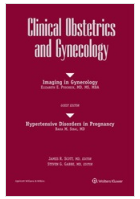Pregnant and taking Sertraline
I’m 17 weeks pregnant and still taking the SSRI antidepressant Sertraline. I thought I was pretty firm in that decision. An attempt to stop taking it last year ended badly. But we had to try, if only to help us work out where we sat in the endless risk/benefit balancing act.
 But I was still thrown when my GP (a new doctor who didn’t support me through withdrawal, relapse and re-prescription) told me I should try to come off – “You could just stop immediately on that amount – or you could take it every other day for a couple of weeks and then stop”.
But I was still thrown when my GP (a new doctor who didn’t support me through withdrawal, relapse and re-prescription) told me I should try to come off – “You could just stop immediately on that amount – or you could take it every other day for a couple of weeks and then stop”.
She seemed convinced the main reason I found it hard to come off them last time was because I was anxious about trying to conceive. In the time we had it was hard to explain that it was considerably more complicated than that.
Mental health agendas vs. pregnancy agendas
When you are pregnant and also manage mental health problems you have lots of people telling you what to do. Different authorities often have slightly different agendas, follow different recommendations and suggest different things. It feels like an extra layer of disempowerment and it’s hard not to get caught between what’s best for your mental health and what’s recommended in pregnancy.
I have:
- personal experience that strongly supports staying on antidepressants
- a well considered and discussed (with a doctor and my husband) decision to start taking them again
- an awareness of the power imbalance implicit in a doctor’s consulting room
- access to – and knowledge of – a lot of relevant research that emphasises the importance of maternal mental health and the danger for both mother and developing baby of coming off when it isn’t appropriate
- an awareness that the ‘risk’ referred to here is pretty small and that everything has risks and benefits – I shouldn’t take the fact that something has a risk associated with it as an automatic reason not to do it
- an awareness that doctors are told to advise women to stop as there is very little safety info but this is a precaution and for some women, it can be better for them and their baby to remain on medication
Questioning my decision
But despite ALL this, I still walked away from the doctor feeling pretty wobbly and thinking “maybe I should, the doctor is telling me I should after all”.
It took another discussion with Alex and some more reading and research to help me feel confident in my decision again.
Reading and research
 Drugs are not clinically tested in pregnant women. This article (published in Clinical Obstetrics and Gynaecology) sums up some of the issues and research. It’s worth saying that we don’t know a lot – even the studies and research that have been done are often very small and there are lots of unanswered questions. It’s also worth highlighting that the authors here seem to have links to a number of pharmaceutical companies. But my understanding, from this and other research I have read, is as follows.
Drugs are not clinically tested in pregnant women. This article (published in Clinical Obstetrics and Gynaecology) sums up some of the issues and research. It’s worth saying that we don’t know a lot – even the studies and research that have been done are often very small and there are lots of unanswered questions. It’s also worth highlighting that the authors here seem to have links to a number of pharmaceutical companies. But my understanding, from this and other research I have read, is as follows.
It’s controversial.
- Antidepressants are often considered a ‘luxury’ medication like ibuprofen or a sleep aid – a view that seems to stem from a misunderstanding of the nature of mental health problems and the role of medication in treating them.
As far as we have been able to determine, these may be reasons to keep taking them.
- Stopping antidepressants in pregnancy may cause a relapse in up to 60-70% of cases.
- Antenatal depression has been associated with low maternal weight gain, increased risk of preterm birth and low birth weight (among other things).
- Children exposed to perinatal depression (depression before or after birth) have higher cortisol levels. Treatment of maternal depression during pregnancy seems to normalise infant cortisol levels.
- Untreated depression during pregnancy is one of the highest risks for postnatal depression.
There are lots of things we don’t know about any potential risks.
- There have been some (conflicting) studies looking at the association between SSRI antidepressants and persistent pulmonary hypertension in newborns. Two studies suggest they are associated, but a more recent one has disputed this association. The FDA says it is unclear. In any case, the relative risk is still a very small absolute risk (The Biologically Active blog explains relative and absolute risk very well here).
- Some studies have suggested that newborn babies may experience withdrawal symptoms if mothers take medication in the third trimester. But there haven’t been enough studies of the syndrome to even define it properly, let alone understand how to mitigate its effects. We certainly don’t know enough to recommend tapering antidepressants in the third trimester. What we do know of the symptoms so far is that they usually appear mild and short lived.
And given how things have gone since, I would have really struggled to add an extra imbalance into the mix. I have recently spoken to a wonderful midwife who really seems to understand and, based on my notes and history, said that the most sensible thing I’ve done is continue with the Sertraline. She has also referred me to additional support sooner than I would have got otherwise.
Read my other blogs about the first trimester.

In pregnancy we always weigh risks vs benefits of treatment.
There are many myths and misunderstandings surrounding depression, both in the lay people and among other health professionals (take the GP in this case). Depression can be debilitating, and when untreated, puts the life of mom and baby at risk.
Thank you for sharing this.